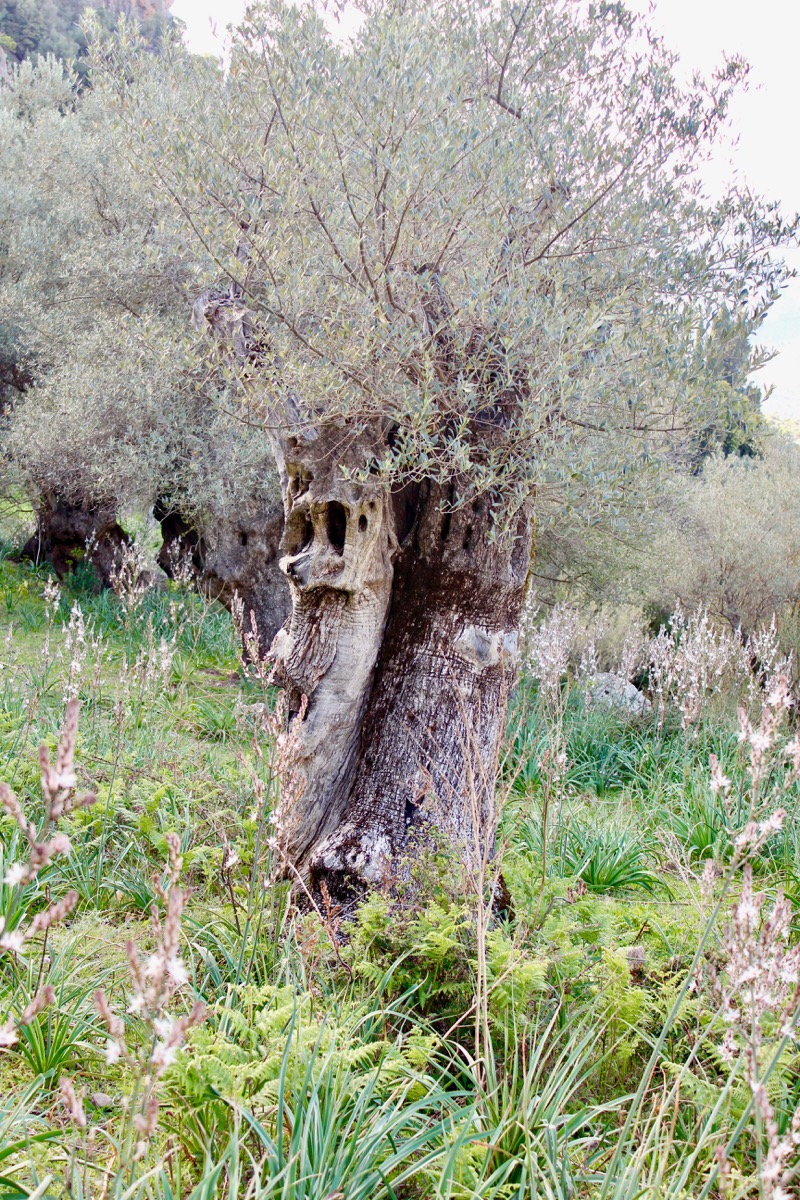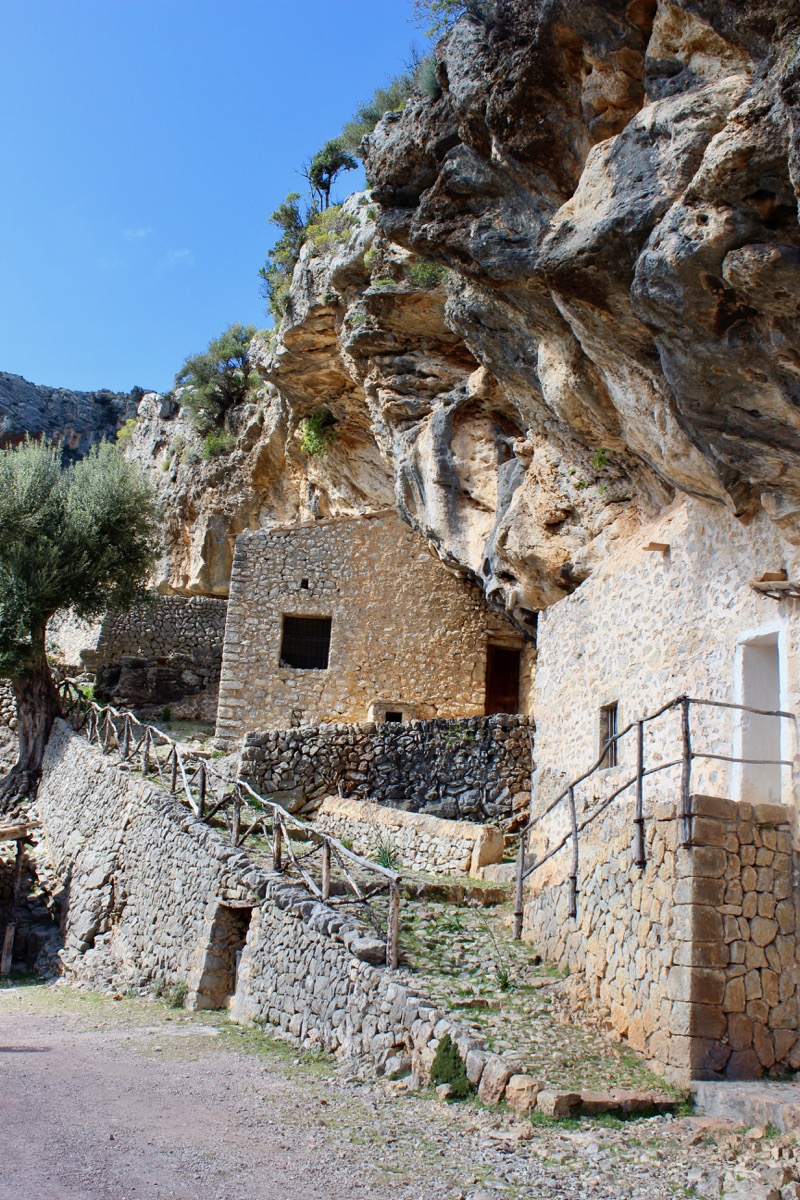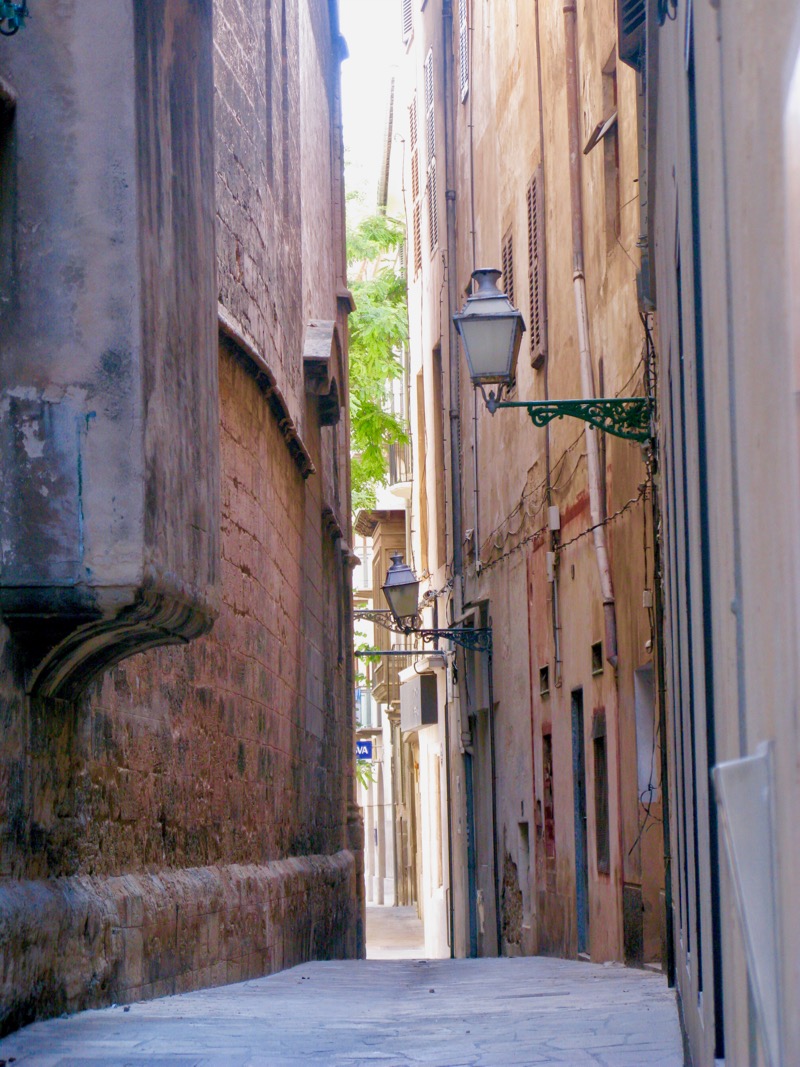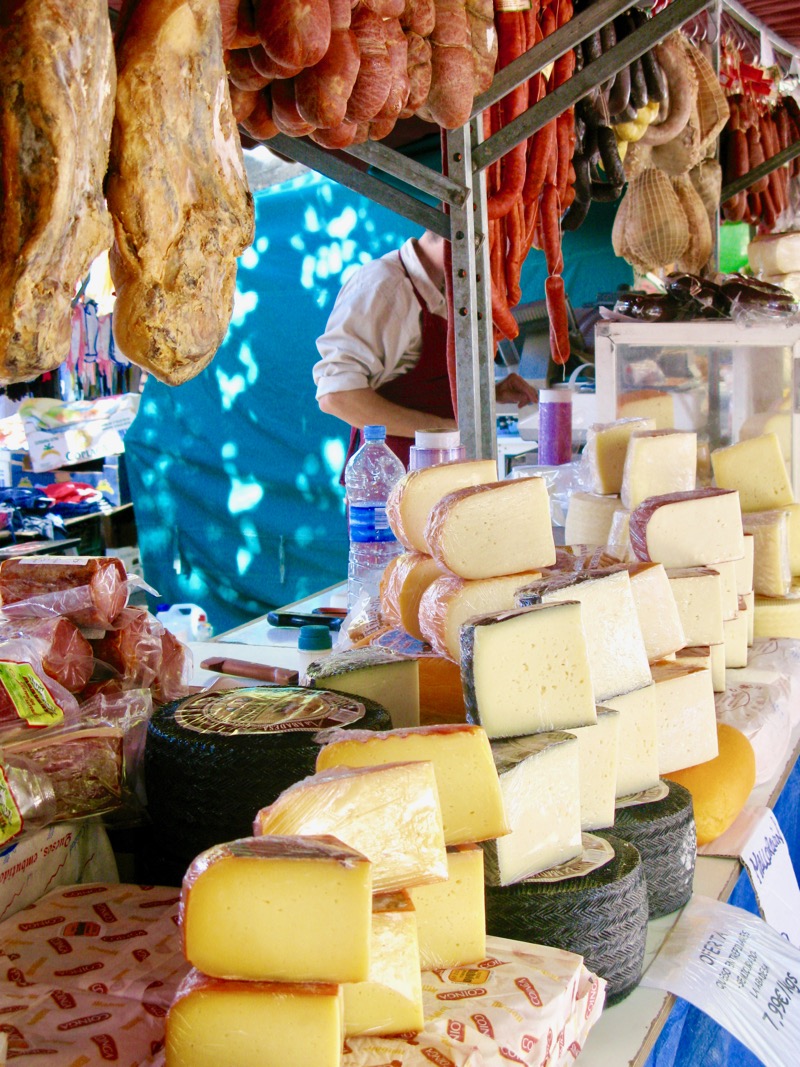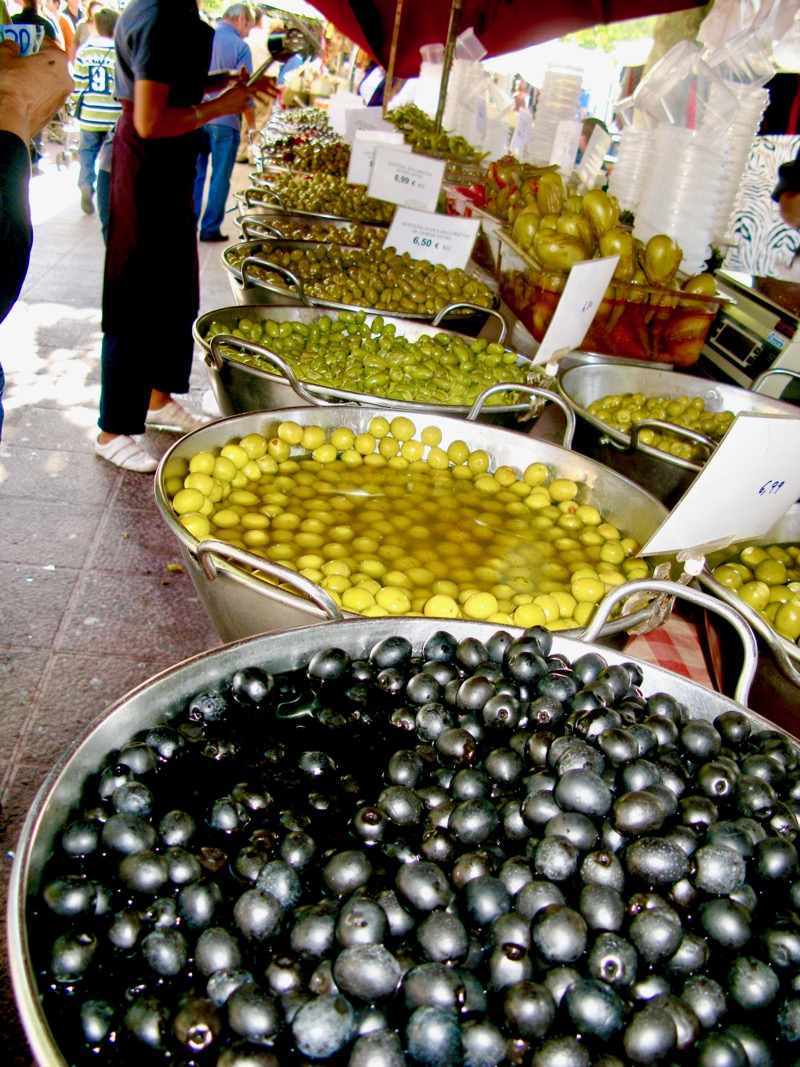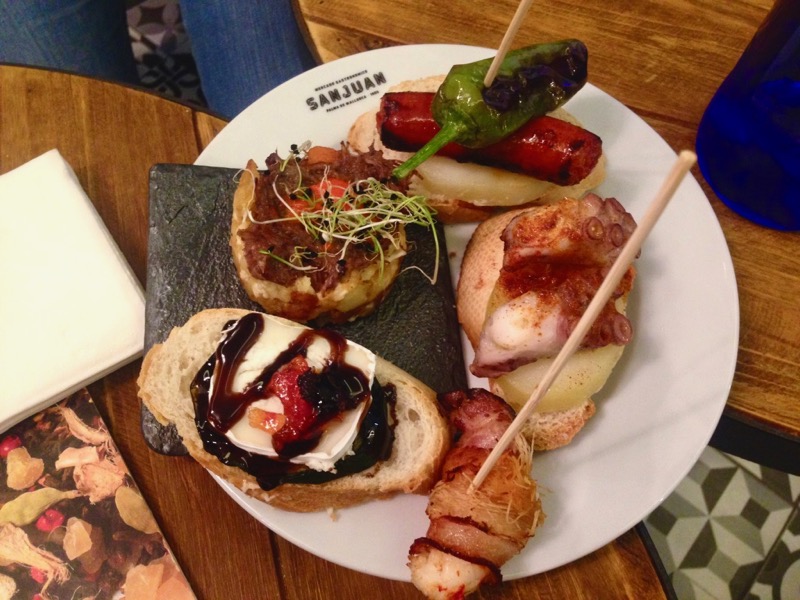The mountainous terrain of the Sierra Tramuntana and the unique produce of Spain’s Balearic Islands make Mallorca an exciting destination for active food lovers. It was not long ago that I was based in Mallorca for my work as a private chef in the yachting industry and often I would fill my winter weekends and days off with treks exploring the mountains and villages and of course the restaurants and cafes.
Fond memories of Mallorcan cuisine start with the mild aroma of olive wood and wild rosemary and the bleating of mountain goats. Just north of the small town of Alaro in the centre of Mallorca, if one follows the signs through the winding olive groves towards El Castell, the entrance of a Moorish ruined fortress and cliff- top chapel can be found. Perched on the roof of El Castell d’Alaro with a $4 glass of Crianza, a breathtaking view of the Sierra Tramuntana and the town of Alaro below can be enjoyed. On descent, a hard-earned lunch break at Es Verger restaurant is highly recommended (Es Verger, Castel d’Alaro, Alaro, Mallorca). With long tables nestled next to wood burning ovens in an old family barn, hikers and locals munch on bread and olives. The shoulder of lamb here is pure comfort food. As are the caricoles, snails in garlic butter broth, picked out carefully with a toothpick. And to finish it all off, the famous electric coffee, a long black coffee with rum, set fire to at the table. My bill was always under $40.
Venturing further across the vast landscape of the Sierra Tramuntana is the village of Llosetta. Starting early in Placa de Lloseta hikers take the road followed by pilgrims centuries ago through olive and almond groves to the small hamlet of Biniamar and the traditionally farmed land of ancient Mancor de la Vall. Home of the Fira de Esclatasangs, a festival held every November, Mallorca’s own breed of reddish-brown wild mushrooms, called the esclatasang, can be found here in the autumn. I stop for a quick snack of Pa amb oli at Bar Can Bernat. The bread is warm, topped with crushed ramellet tomato and completed with a grilled esclatasang mushroom.
Those who are familiar with Palma de Mallorca's Latin Quarter will in turn be well-acquainted with the lively area of Santa Catalina and its market. Here locals and visitors embrace a vibrant array of produce. In the south-west corner of the market a bubbly lady sells fresh boquerones, baby anchovies marinated in parsley, garlic, vinegar and olive oil. The fish stalls display scarlet Mallorcan prawns. From a small speciality shop one can try a cut of well-known Balearic pork sausage made with minced pork meat and spices such as paprika called Sobrassada. Pick up a packet of Mallorca’s much-loved salty biscuits called galletas d’inca, and slather it with the Sobrassada. And, of course, no market trip would be complete without cheese. Some wedges of aged Mallorcan cheese (a crumbly cow/goat’s milk cheese) and a semi-cured Menorcan variety, Mahon, go perfectly with native Mallorcan vine strung ramellet tomatoes. And don't forget the amazing juicy white peaches!
Having visited Mallorca on a number of occasions, a tour around Palma’s Old Town is a definite recommendation for any avid walker. The architecture alone reflects the islands constant changes in occupation, from La Seu, Mallorca’s stunning gothic cathedral, to the Arab baths located east of the city walls. These baths reveal one of the last surviving sites of Moorish architecture in Mallorca and offer a cool respite from its bustling streets (Banys Arab, Carrer Serra 7, Palma de Mallorca). Whilst meandering through the medieval quarters one can become distracted by boutiques with their wonderfully crafted leather goods and myriad of street performers. The work of Gaudi, as seen at the Gran Hotel and surrounding buildings in Plaza de Mercado adds another dimension to the architecture of the old town.
On a food trek, however, it is vital to take some time to visit Lo Di Vino (Carrer del Carmen 16, Palma old town). The owner, Pedro, will charismatically take you on a wine tour of Spanish and Mallorcan wines, as you munch on Iberico ham and local cheese. And don't forget to stop by the Panaderia de la Mision (C/Mision 36, Palma) to pick up a sweet caricola ensaimada for the following days breakfast. Made using a centuries old recipe including flour, eggs and pork lard, traditional unfilled ensaimadas are topped with icing sugar and are a staple of the Mallorquin diet.
Dinner rarely starts before 9pm at the earliest in Spain - a far cry from dinner time in Perth, with most restaurants cleaned up and closed by 10.30pm. Marc Fosh’s acclaimed restaurants, such as Simply Fosh (Hotel de la Misio, C/Missio 7A, Palma, +34 971 720 114) have withstood the test of time and the 2008 financial crisis that hit Spain. His paired down but elegant restaurant offers an affordable three-course lunch for $35, with main meals including cuttlefish with smoked rice. Fosh still manages to incorporate Mallorcan ingredients seamlessly and with simplicity.
My personal all-time favourite in Palma de Mallorca was El Chaflan de Patxi (Carrer Espartero 28, Plaza del Puente, +34971284486) otherwise known simply as Patxi. I cannot help but return to this Basque-inspired restaurant whenever we visit. Rarely frequented by tourists, Patxi has a fantastic choice of Basque-style pintxos – tender foie gras, brazuela de pato and fried brie with cranberry, all cooked to order. Lamb chops and steak can be ordered by the kilo here when seated in the restaurant. Topped off with a choice of wines from across Spain, Patxi is one place I should perhaps keep an affordable secret.
Experience with the food cultures and ingredients of Spain and the Balearic Islands influence many of the techniques and preparations used in the RiverMint kitchen. The honest rusticity of Mallorcan cuisine and its focus on fresh and light seafood dishes and spiced meat alternatives guides our approach to the wonderful native ingredients we find on our doorstep here in WA and beyond. Moving forward, we hope to continue to embrace our own Australian food culture and ingredients with integrity just as the ancient ethic groups of Spain, from the Catalans to the Mallorcans to the Andalucians, have for centuries.



